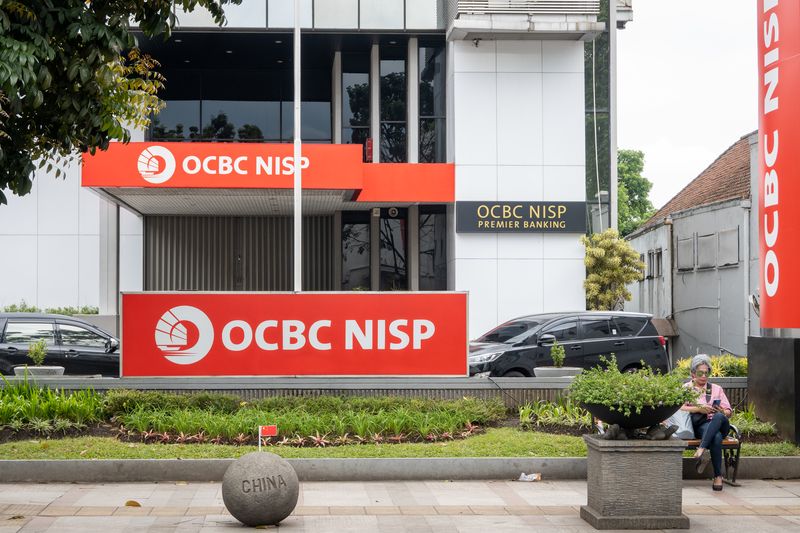Indonesian companies are lining up bond offerings to take advantage of lower yields after issuance increased by 36% in the first five months of the year.
Bank OCBC NISP on June 3 and Indomobil Finance on June 4 started bookbuilding to raise Rp2.5trn (US$154m) combined from rupiah bonds with tenors of between one and five years in multiple tranches. Wahana Ottomitra Multiartha, a unit of Maybank Indonesia, plans to start bookbuilding on June 13 for a Rp1.5trn offering.
Bank Mandiri and Bank Rakyat Indonesia are planning to raise Rp3trn–Rp5trn from rupiah bonds in the second half, according to Mega Capital Sekuritas.
More issuers are planning to hit the market after debt offerings surged to Rp60trn from January to May compared with around Rp44trn in the same period last year, according to Pefindo.
The Indonesian ratings agency estimates debt issuance this year will surpass last year's Rp128trn, forecasting issuance of Rp139trn–Rp155trn in 2025.
Fitch Indonesia estimates issuance by non-financial corporates will exceed Rp80trn in 2025, up from Rp73trn in 2024.
Issuers are flocking to sell rupiah bonds after Bank Indonesia cut interest rates twice this year, making it cheaper for issuers to tap the domestic market.
On May 21, BI cut the benchmark seven-day reverse repurchase rate for the second time this year, by 25bp to 5.5%.
"Currently, corporate bond issuers are able to raise funds at 50bp–65bp cheaper compared with the beginning of this year," said Lionel Priyadi, fixed income and macro strategist at Mega Capital Sekuritas. "Issuers are finding it attractive to raise short-term bonds", especially for tenors of one to five years, he said.
Yields on one-year AAA corporate bonds are in a range of 7.15%–6.50%, the three-year at 7.35%–6.85% and the five-year at 7.40%–6.90%, according to Priyadi.
Issuance is expected to pick up in the second half because of large maturities coming due.
"We still expect some more issuers to raise domestic bonds to meet refinancing requirements for the remainder of 2025," said Felita, director at Fitch, which estimates Rp50trn of non-financial corporate notes will be due from May to December. (Like many Indonesians, Felita goes by one name.)
Moreover, rates will remain attractive as economists expect two more rate cuts by BI totalling 50bp this year to buttress GDP growth, which would bring the benchmark policy rate to 5%. Growth is estimated to slow to 4.7% this year from 5% in 2024.
Analysts increasingly see domestic capital markets as a credible complement to US dollar funding.
"We have been seeing more interest from rated issuers to tap domestic bond markets, either to refinance maturing bank loans or dollar bonds, or raise fresh funds," said Xavier Jean, senior director of corporate ratings at S&P.
"For years, issuers preferred dollar bond raising because of pricing and the ability to raise more funding in one go. Fundraising costs in rupiah are now fairly similar to fundraising in dollars, especially for weaker credits; there is no currency risk for domestic firms and no need to hedge."
Indonesia's offshore bond market has been relatively quiet in the past couple of years, although there have been a few issues in the past few months by Medco Energi Internasional and state-owned oil and gas company Pertamina Hulu Energi.
"Issuers which are finding it difficult to raise offshore dollar bonds due to volatility are exploring the domestic market for raising funds," said Felita at Fitch. For example, issuers such as Bukit Makmur Mandiri Utama (Buma), the coal subsidiary of Indonesian miner Delta Dunia, have tapped the domestic bond market to diversify funding.
Buma raised Rp2trn, equivalent to US$123m, from debut sukuk this year after printing maiden bonds last year.
The deepening of the domestic market means that firms can now raise bigger amounts, according to Jean at S&P.
"A few years back, raising over US$100m in one issue was less frequent except for state-owned enterprises and finance companies. We see larger issuance going on now," said Jean.
While issuance has picked up, "there is a risk of potential crowding out caused by the issuance of large government bonds this year, in line with the need to finance the increasing budget deficit and significantly increasing maturing debt", said Suhindarto, head of economic research at Pefindo. On Thursday, Indonesia rolled out a Rp24.4trn stimulus package providing discounts on public transport as well as wage subsidies during school holidays.
For now, fears have abated that Indonesia's fiscal deficit could breach the 3% target this year, which spooked the markets earlier in the year.
There is a "lower risk now that Indonesia will overspend, even though many of the policies announced by president Prabowo Subianto seemed very expensive and populist as well and was a worry in the beginning of the year. I think that's less of the case now, they seem to be more disciplined", said Rajeev De Mello, global macro portfolio manager at GAMA Asset Management.
The government under Prabowo is heard to be scaling back some of its populist programmes.
"The government has plans to cut the size of subsidised houses to 18 square metres from 21 square metres for its 3 million housing programme, which will reduce the cost," said Priyadi at Mega Capital Sekuritas.
"It is heard from many officials that other programmes such as the free nutritious meal programme, which will cost an estimated Rp71trn for the first year, will also be scaled back as the ministry of finance is not sure of meeting its revenue target this year."
Finance minister Sri Mulyani Indrawati told a press conference on April 30 that government revenue in the first quarter reached Rp516.1trn, down 17% from Rp620trn last year, according to local news reports.






